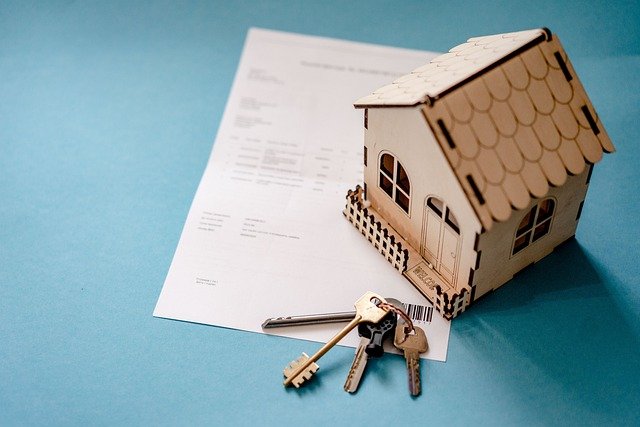Discover Your Options for Single Mother Housing Assistance in 2025 and Learn How You May Qualify for Support.
Finding stable housing as a single mother can feel overwhelming, but numerous assistance programs exist to provide support in 2025. From federal rental vouchers to local emergency housing initiatives, understanding your options is the first step toward securing safe, affordable housing for you and your children. This comprehensive guide explores the various types of housing assistance programs available for single mothers, eligibility requirements, and practical strategies for navigating the application process successfully.

What Types of Housing Assistance Programs Are Available for Single Mothers?
Single mothers have access to multiple housing assistance programs designed to address different needs and circumstances. The Housing Choice Voucher Program, commonly known as Section 8, provides rental assistance by covering a portion of monthly rent payments. Public housing offers affordable rental units owned and operated by local housing authorities. The Low-Income Housing Tax Credit program creates affordable rental properties through private developers who receive tax incentives.
Additionally, the USDA Rural Development program assists families in rural areas with homeownership and rental assistance. Emergency housing programs provide temporary shelter during crisis situations, while transitional housing offers medium-term support as families work toward permanent housing solutions.
How Do You Meet Eligibility Criteria and Application Process for Housing Support?
Eligibility for housing assistance programs typically depends on income limits, family size, and local housing authority requirements. Most programs require household income to fall below 50% of the area median income, though some accept families earning up to 80% of the median. Documentation needed includes proof of income, identification, Social Security cards for all household members, and bank statements.
The application process begins by contacting your local Public Housing Agency or visiting their website. Many areas maintain waiting lists due to high demand, so applying early is crucial. Some programs use lottery systems or prioritize families based on specific criteria such as homelessness, domestic violence situations, or medical needs.
Where Can You Find Emergency and Transitional Housing Resources?
Emergency housing resources provide immediate shelter for families facing homelessness or unsafe living conditions. The Emergency Solutions Grant program funds local organizations that offer temporary housing, meals, and supportive services. Many communities operate family shelters specifically designed for single mothers with children, providing private rooms and childcare assistance.
Transitional housing programs offer longer-term support, typically lasting six months to two years. These programs combine affordable housing with services like job training, financial counseling, and childcare assistance. The Supportive Housing Program helps families transition from temporary housing to permanent solutions while building stability and self-sufficiency.
How Do Rental Assistance Programs Work for Single-Parent Families?
Rental assistance programs operate through various mechanisms to make housing affordable for single-parent families. Housing Choice Vouchers allow families to choose their housing in the private market, with the program paying landlords directly for a portion of the rent. Families typically pay 30% of their adjusted income toward rent, while the voucher covers the remaining amount up to program limits.
Project-based assistance attaches rental subsidies to specific housing developments, offering reduced rents to qualified tenants. Rapid rehousing programs provide short-term rental assistance and services to help families quickly exit homelessness and return to stable housing. These programs often include security deposits, utility assistance, and case management support.
What Unique Housing Resources Exist for Single Mothers Worldwide?
Many countries offer specialized housing support recognizing the unique challenges single mothers face. In Canada, the National Housing Strategy includes targeted funding for women and children fleeing domestic violence. Australia’s Social Housing program prioritizes single-parent families, while the United Kingdom offers Housing Benefit to help cover rental costs.
Several nonprofit organizations worldwide focus specifically on single mother housing needs. Habitat for Humanity operates in multiple countries, helping families build affordable homes through volunteer labor and interest-free loans. Some programs offer shared housing arrangements where single mothers can split costs while providing mutual support and childcare assistance.
What Are the Costs and Provider Options for Housing Assistance?
Understanding the financial aspects of housing assistance helps families plan effectively. Most federal programs require families to contribute 30% of their adjusted income toward housing costs, while assistance covers the remainder. Local housing authorities and nonprofit organizations serve as primary providers of housing assistance services.
| Program Type | Provider | Average Family Contribution | Typical Wait Time |
|---|---|---|---|
| Section 8 Vouchers | Local Housing Authorities | 30% of income | 2-8 years |
| Public Housing | Public Housing Agencies | 30% of income | 1-5 years |
| Emergency Shelter | Local Nonprofits | $0-$200/month | Immediate |
| Transitional Housing | Community Organizations | 30% of income | 6 months-2 years |
Prices, rates, or cost estimates mentioned in this article are based on the latest available information but may change over time. Independent research is advised before making financial decisions.
What Are the Best Practical Tips and Resources for Navigating Housing Assistance in 2025?
Successfully navigating housing assistance requires preparation and persistence. Start by gathering all required documentation before beginning applications, including tax returns, pay stubs, and identification documents. Create a filing system to track application deadlines, appointment dates, and correspondence with housing agencies.
Research multiple programs simultaneously since eligibility requirements and waiting times vary significantly. Connect with local social service agencies, churches, and community organizations that often provide additional resources and support. Many areas offer housing counseling services that provide free guidance through the application process and help families understand their options. Consider temporary solutions like staying with family or friends while pursuing long-term housing assistance, and maintain regular contact with housing authorities to keep applications current and show continued interest.
Housing assistance programs in 2025 offer multiple pathways to stable housing for single mothers, though navigating these systems requires patience and preparation. By understanding the various program types, eligibility requirements, and application processes, single mothers can make informed decisions about which options best serve their families’ needs. While waiting lists and complex procedures can seem daunting, the support available through these programs can provide the foundation for long-term housing stability and family success.



